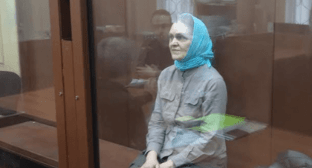14 August 2003, 21:04
Human rights activists protest court decision against 60 Minutes program
On August 13 human rights advocacy NGOs expressed concern regarding the Tbilisi District Court decision that obliged the investigative TV program 60 Minutes to pay 1 million lari (USD 450 000) to Georgian Railway Department Chairman Akaki Chkheidze.
Akaki Chkheidze, who is also one of the leaders of the government-backed election alliance, filed a libel against the Tbilisi-based independent Rustavi 2 TV channel, which broadcasted 60 Minutes. In one of its broadcasts last October, 60 Minutes claimed that Akaki Chkheidze was involved in corruption and financial machinations.
Giga Bokeria from the Liberty Institute called the court decision alarming and said "this was an unprecedented case when a TV company was forced to pay such a great sum.
Erosi Kitsmarishvili, a head of the broadcasting company Rustavi 2, called the court decision an attempt to silence independent media on the eve of the parliamentary elections.
Akaki Gogichaishvili, a creator of 60 Minutes, protests against the Tbilisi district court decision and says this was expected as the government needs additional funds for the parliamentary elections.
Both the Rustavi 2 broadcasting company and 60 Minutes intend to appeal to the Supreme Court for the case review.
Source: Civil Georgia On-line Magazine




